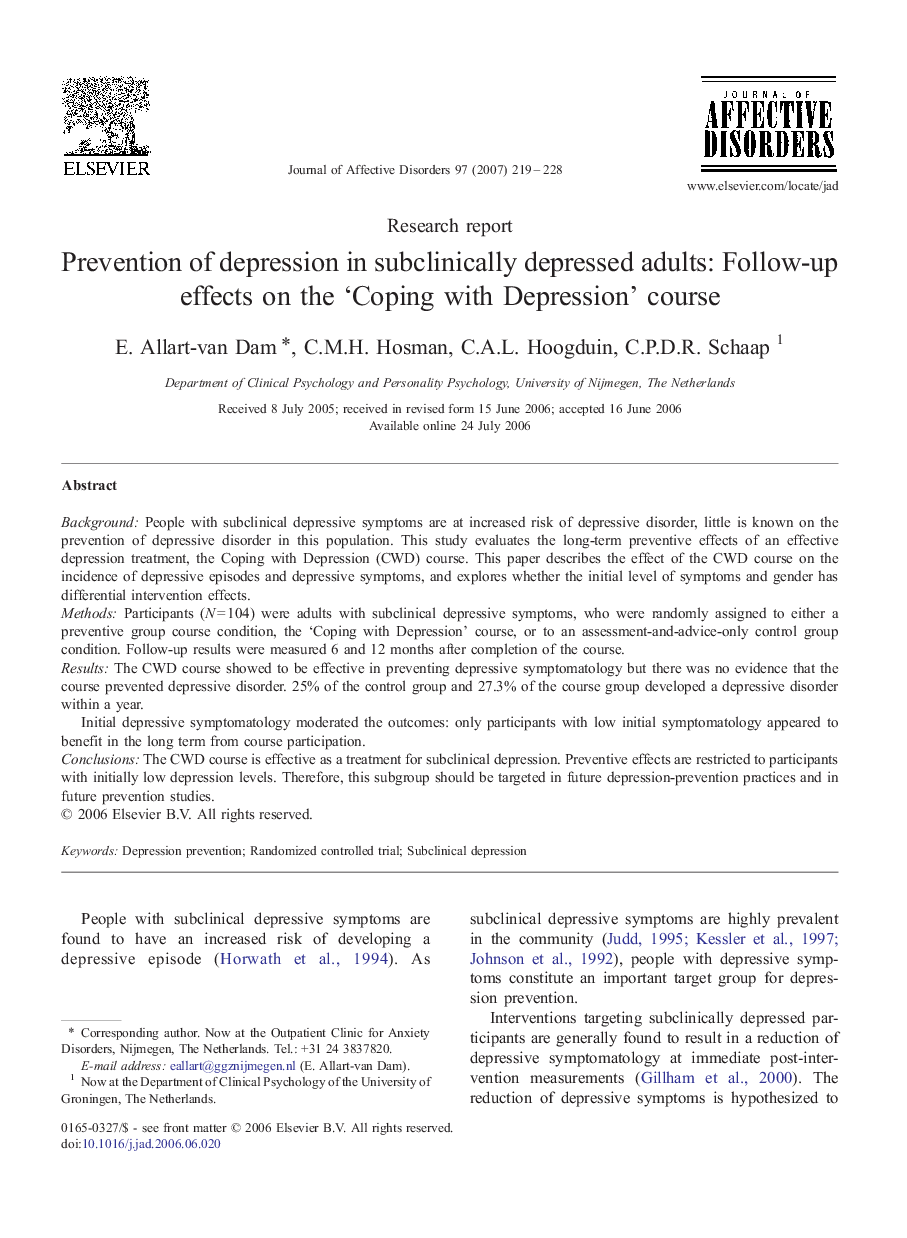| Article ID | Journal | Published Year | Pages | File Type |
|---|---|---|---|---|
| 4187968 | Journal of Affective Disorders | 2007 | 10 Pages |
BackgroundPeople with subclinical depressive symptoms are at increased risk of depressive disorder, little is known on the prevention of depressive disorder in this population. This study evaluates the long-term preventive effects of an effective depression treatment, the Coping with Depression (CWD) course. This paper describes the effect of the CWD course on the incidence of depressive episodes and depressive symptoms, and explores whether the initial level of symptoms and gender has differential intervention effects.MethodsParticipants (N = 104) were adults with subclinical depressive symptoms, who were randomly assigned to either a preventive group course condition, the ‘Coping with Depression’ course, or to an assessment-and-advice-only control group condition. Follow-up results were measured 6 and 12 months after completion of the course.ResultsThe CWD course showed to be effective in preventing depressive symptomatology but there was no evidence that the course prevented depressive disorder. 25% of the control group and 27.3% of the course group developed a depressive disorder within a year.Initial depressive symptomatology moderated the outcomes: only participants with low initial symptomatology appeared to benefit in the long term from course participation.ConclusionsThe CWD course is effective as a treatment for subclinical depression. Preventive effects are restricted to participants with initially low depression levels. Therefore, this subgroup should be targeted in future depression-prevention practices and in future prevention studies.
